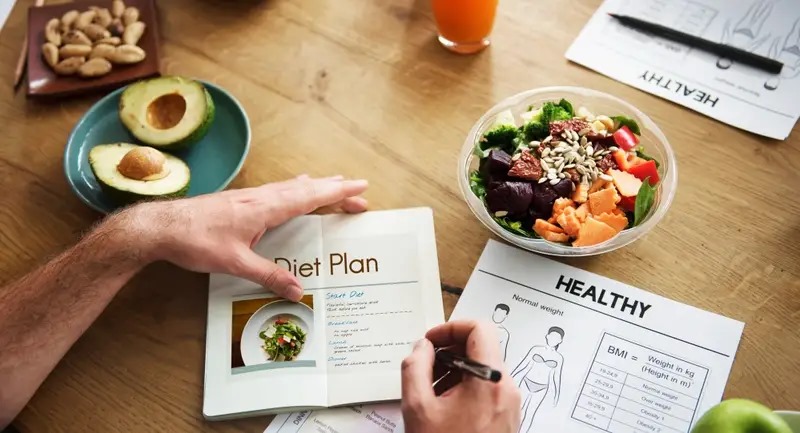Simple Daily Nutrition Guide: How to Live Better and Eat Better
You know the phrase, "You are what you eat," don't you? Well, the way things go in our lives, it's easy to neglect healthy eating. This everyday nutrition guide exists to simplify what you must do for good nutrition into manageable steps that can aid you in becoming a healthier and happier you. If you're looking for the best healthy nutrition blog or simply trying to figure out how to assemble a balanced plate, you've come to the right place.
Building a Balanced Plate
Visualize your plate sections. Here's what to fill each space with:
- Half your plate: So, half the stuff with your plate with vegetables and fruits. They are filled with vitamins, minerals and fiber, which are really the key to staying healthy. Try to combine colors to get too much of various nutrients. Some of the healthiest foods for better health.
- One fourth of your plate: Whole grains. Whole grains like quinoa, brown rice, and whole-wheat bread contain complex carbohydrates that give you sustained energy. Choose the best whole grains to maintain your energy levels and digestion on a daily basis.
- One quarter of your plate: Chicken, fish, beans, and lentils are all good options. Protein helps to build and repair tissue and prevent you from getting too hungry. This is a large component of understanding How to eat a balanced diet each day.
Fats and Oils:
Our bodies need healthy fats. Incorporate them in moderate amounts from foods such as olive oil, avocados, and nuts. Our bodies need healthy fats. Incorporate them in moderate amounts from foods such as olive oil, avocados, and nuts some of the Best foods for a healthy way of living.
Limit:
- Added sugars: Sweetened beverages, candy, and baked goods have minimal nutritional content and are most likely to contribute to weight gain and other issues. The following are tips on diminishing added sugars in your diet: read food labels, abstain from processed food, and utilize natural sweeteners such as fruits.
- Unhealthy fats: You need to watch out for saturated and trans fats in processed meats, fried foods, and baked goods.
- Sodium: Excess sodium increases blood pressure. Consume fresh or low-sodium canned vegetables and cut back on processed food.
Making it Work for You
- Plan your meals: Spend some time during the week planning your snacks and meals. This will enable you to make healthier decisions and stay away from unhealthy temptations.
- Prepare healthy snacks: Keeping things like fruits, veggies with hummus, or yogurt on hand will help you resist those sugary cravings.
- Cook more at home: You are in charge of what goes in and how much you eat.
- Don’t deprive yourself: Enjoy the odd treat in moderation. A balanced diet can be maintained in the long term.
- Stay hydrated: Water is essential for overall health. Aim for eight glasses of water daily.
Listen to Your Body
Listen to your hunger and fullness cues. Eat slowly and enjoy every bite. Stop eating when you feel satisfied, not filled.
Remember:
- Small changes: Make small, reasonable changes to your diet. Gradually adopting healthier habits is more likely to be successful than making extreme changes.
- Enjoy your food: Food is not just for sustenance. Experiment with new healthy recipes and find foods you like.
Using these simple rules, you can create a daily meal plan that will feed your body and lead to a healthier you. Remember, "Eat Well, Be Well" is a process, not a destination. Enjoy the process!

